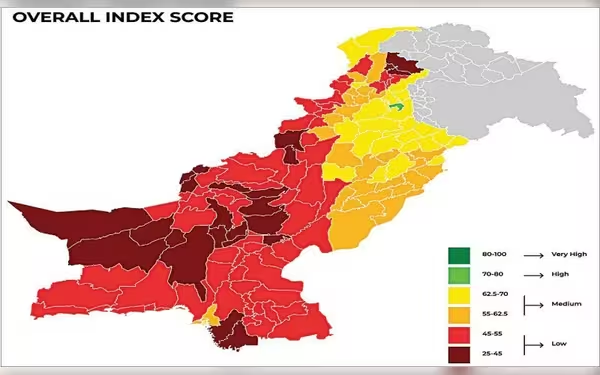Saturday, November 16, 2024 07:48 PM
Education Crisis in Balochistan: Urgent Reforms Needed
- Balochistan's districts categorized as 'low' in education performance.
- Inadequate infrastructure and resources hinder educational access.
- Urgent reforms required for governance and public financing.
 Image Credits: dawn.com
Image Credits: dawn.comBalochistan faces a severe education crisis, with urgent reforms needed in infrastructure, governance, and public financing to improve schooling.
Education is a fundamental pillar of any society, shaping the future of its youth and, consequently, the nation. In Pakistan, the state of schooling has been a topic of concern for many years. Despite various efforts to improve the education system, significant challenges remain, particularly in regions like Balochistan. The DEPIx, or District Education Performance Index, provides a structured overview of the educational landscape across the country, focusing on five critical domains: Infrastructure & Access, Learning, Inclusion (Equity & Technology), Governance and Management, and Public Financing.
One of the most alarming findings from the DEPIx is that all districts in Balochistan fall into the "low" education performance category. This categorization highlights the severe challenges faced by the province in terms of educational access and quality. With inadequate infrastructure, limited resources, and a lack of trained teachers, students in Balochistan are at a significant disadvantage compared to their peers in other provinces.
Infrastructure and access are crucial for any educational system. In many areas of Balochistan, schools are either non-existent or in a state of disrepair. This lack of proper facilities not only discourages enrollment but also affects the learning experience of those who do attend. Furthermore, the issue of inclusion is paramount. Many children, especially girls, face barriers to education due to cultural norms and economic constraints. The DEPIx emphasizes the need for equity and technology to bridge these gaps, ensuring that every child has the opportunity to learn and grow.
Governance and management also play a vital role in the effectiveness of the education system. In Balochistan, there is often a disconnect between policy-making and implementation. This gap can lead to mismanagement of resources and a lack of accountability, further exacerbating the challenges faced by schools. Public financing is another critical area that requires attention. Adequate funding is essential for improving infrastructure, hiring qualified teachers, and providing necessary learning materials.
The state of schooling in Pakistan, particularly in Balochistan, calls for urgent action. The DEPIx serves as a wake-up call for policymakers, educators, and the community at large. It is imperative to address the issues of infrastructure, access, inclusion, governance, and financing to create a more equitable and effective education system. By investing in education, we are not just investing in the future of our children but also in the future of our nation. Every child deserves the right to quality education, and it is our collective responsibility to ensure that this right is upheld.













